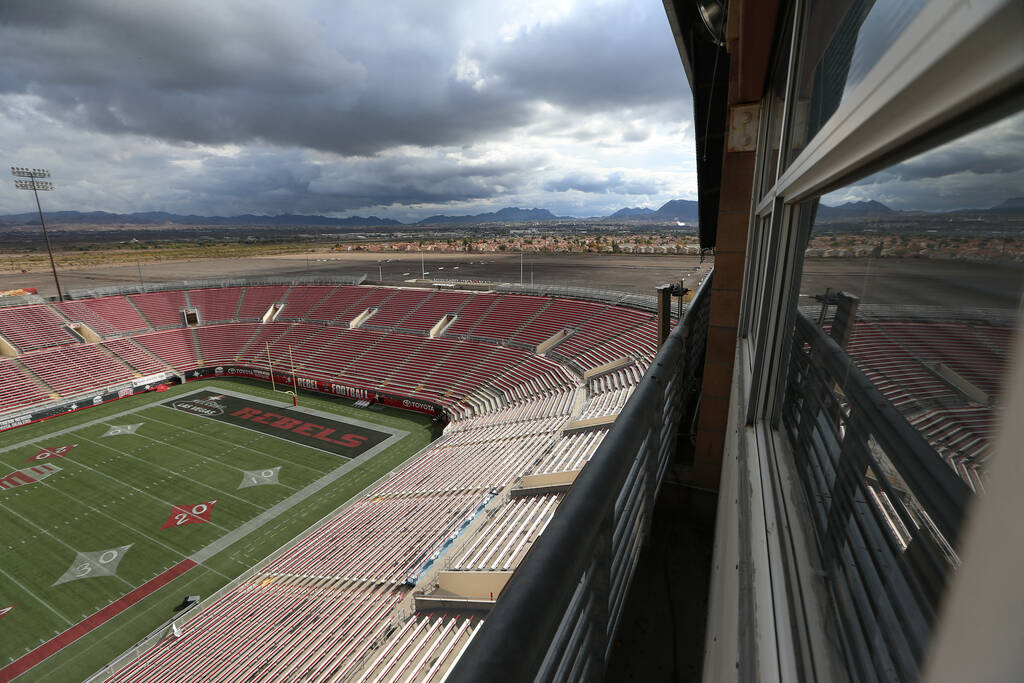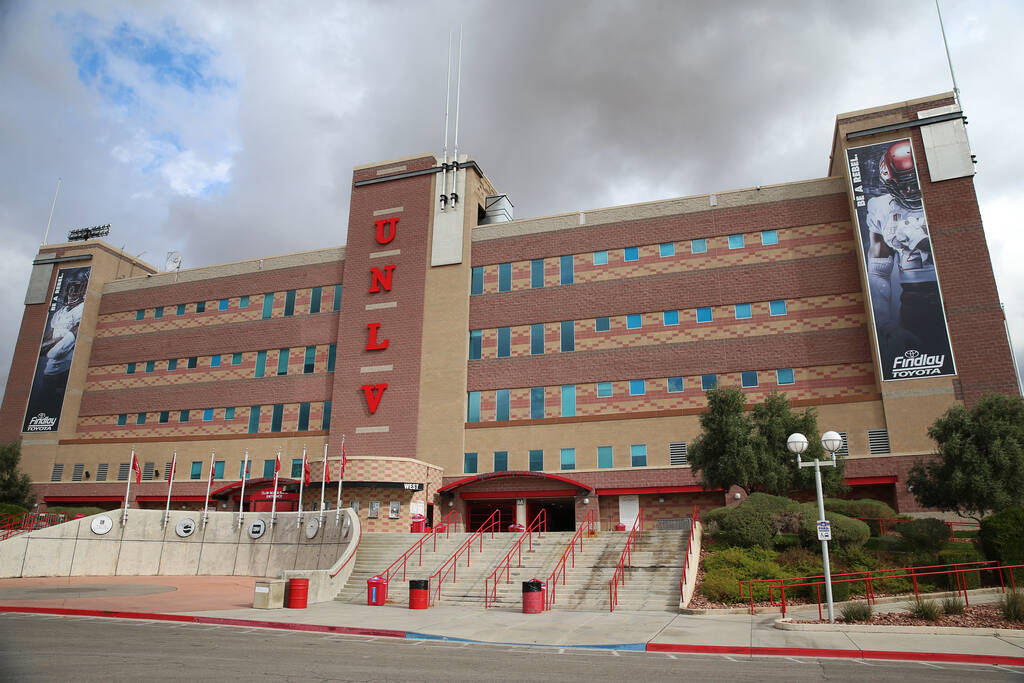UNLV exploring sale of Sam Boyd Stadium
UNLV is considering selling the 69-acre Sam Boyd Stadium site to Clark County for $5 million.
The potential transaction will be discussed at next month’s Nevada System of Higher Education Board of Regents meeting, set for Sept. 5-6 in Carson City. Discussing the potential deal could set the matter for a vote at a future board meeting, according to the agenda background material for September’s meeting.
UNLV hopes to finalize the deal within six months, pending the outcome of the initial discussion next month and potential vote at a future regents meeting.
The university has not been able to use Sam Boyd Stadium since it entered into a joint-use agreement with the Raiders and the Las Vegas Stadium Authority and began playing at Allegiant Stadium in 2020.
Clark County had owned the land when Sam Boyd Stadium first opened in 1971. Before then, it was owned by the Bureau of Land Management.
The Rebels played at Sam Boyd as a “stadium user” until 1985, when the county transferred ownership to UNLV at no cost, though the university reported spending around $20 million to renovate the stadium. UNLV reported $500,000 in operation and maintenance costs for the stadium in 2023-24.
Possible acquisition considered
The county expressed interest in acquiring the property from UNLV in 2022 for potential public uses, including an expansion of Silver Bowl Park and/or for community infrastructure needs, according to the agenda background.
At the time, the county offered UNLV $3.6 million dollars for the land, based on four years of property operations and maintenance costs for the shuttered stadium. UNLV countered the offer, noting, “UNLV property sale valuations are conducted on the basis of commissioned independent third-party appraisal valuations,” the agenda background material read.
UNLV commissioned multiple third-party appraisals, including one in April 2023 of $10.4 million. Clark County had its own third-party appraisal commissioned in February 2023, which valued the land at $0.
“The conclusion of our highest and best use is that the subject could not be put to an economic use that would allow it to be redeveloped, sold, or leased. Presently, the subject property is considered not to have a supportable market value and is assigned a value of $0,” the county appraisal read.
With the stadium site surrounded by BLM land, there are also restrictions for whom might be able to purchase the land. As the stadium site’s former owner and having ownership of land nearby, Clark County is one of few that would likely be able to acquire the site, the background material noted.
The $5 million price is the midpoint between the county and UNLV’s third-party appraisals.
How proceeds would be used
If the transaction is successful, UNLV would use the funds to boost infrastructure, student financial aid and support programs.
UNLV noted that the university and the county have a history of collaborating on land deals, which have benefited both sides in the past.
Those deals included the original deal that saw UNLV gain ownership of Sam Boyd Stadium for no charge; nine acres the county sold UNLV at below market value for its School of Medicine in the Las Vegas Medical District; and UNLV allocating $3.5 million and a trade out of land with the county for the realignment of Cottage Grove Drive and the adding of a traffic signal to improve Maryland Parkway.
UNLV spokesman Tony Allen deferred questions about the potential deal to the agenda background material, citing the meeting has yet to take place. Clark County did not immediately respond Friday to comment regarding the possible purchase of Sam Boyd Stadium.
Contact Mick Akers at makers@reviewjournal.com or 702-387-2920. Follow @mickakers on X.



















